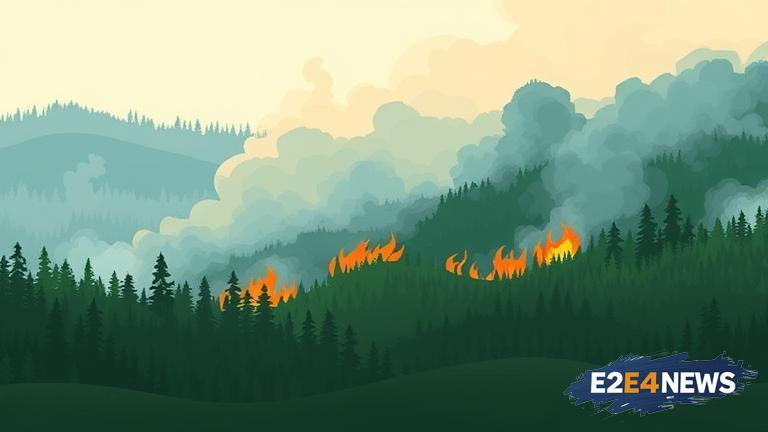The Canadian wildfires have been burning for an extended period, resulting in a prolonged impact on the environment and human health. The fires have been fueled by hot and dry conditions, making it challenging for firefighters to contain them. The situation has been exacerbated by strong winds, which have spread the fires rapidly. As a result, thousands of people have been forced to evacuate their homes, with many more under evacuation alerts. The wildfires have also had a devastating impact on local wildlife, with many animals losing their habitats and struggling to survive. The air quality in the affected areas has been severely compromised, with high levels of particulate matter and other pollutants. This has led to a significant increase in respiratory problems, particularly among vulnerable populations such as the elderly and young children. The Canadian government has deployed military personnel and equipment to assist with the firefighting efforts. Despite these efforts, the fires continue to spread, with new blazes erupting daily. The economic impact of the wildfires is also being felt, with many businesses forced to close temporarily. The tourism industry has been particularly hard hit, with many visitors canceling their plans due to the poor air quality and safety concerns. The Canadian wildfires have also had a significant impact on the country’s climate, with the fires releasing large amounts of carbon dioxide and other greenhouse gases into the atmosphere. This has contributed to the ongoing climate crisis, which is having far-reaching consequences for the environment and human health. The Canadian government has pledged to provide support to those affected by the wildfires, including financial assistance and counseling services. However, many residents are still struggling to cope with the aftermath of the disaster. The wildfires have also raised concerns about the preparedness of Canadian communities for natural disasters. Many residents have criticized the government’s response to the crisis, citing a lack of resources and support. The Canadian wildfires have also had a significant impact on the country’s indigenous communities, who have been disproportionately affected by the disaster. The fires have destroyed many indigenous homes and businesses, and have also disrupted traditional hunting and gathering practices. The Canadian government has been accused of neglecting the needs of indigenous communities, who are often located in remote and vulnerable areas. The wildfires have also highlighted the need for greater investment in wildfire prevention and mitigation measures. This includes implementing more effective forest management practices, as well as providing education and outreach programs to communities at risk. The Canadian government has pledged to take a more proactive approach to addressing the root causes of wildfires, but many residents remain skeptical. As the situation continues to unfold, it is clear that the Canadian wildfires will have a lasting impact on the environment, human health, and the economy. The Canadian government must take a comprehensive and sustained approach to addressing the crisis, including providing support to affected communities and investing in measures to prevent and mitigate future wildfires.





